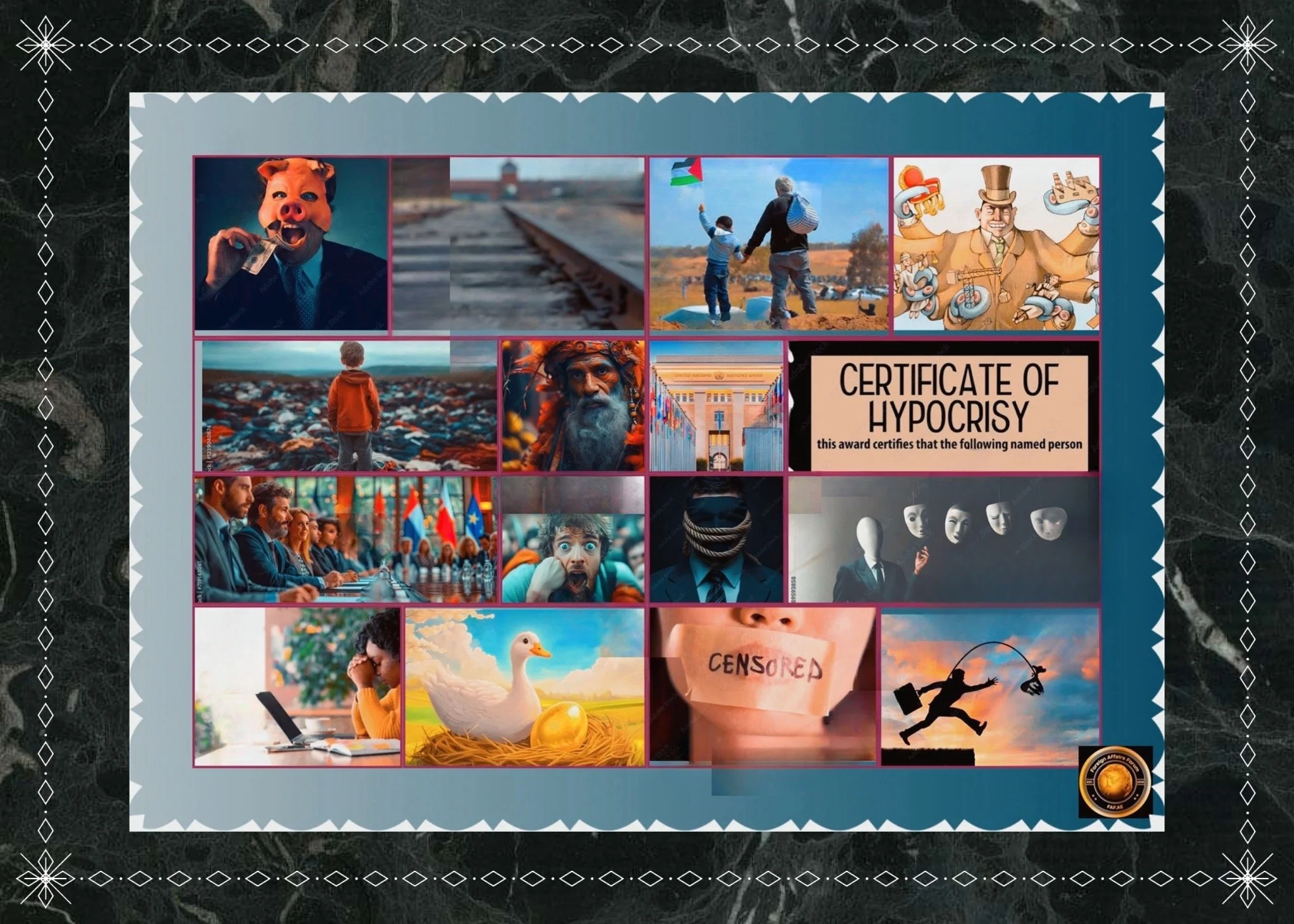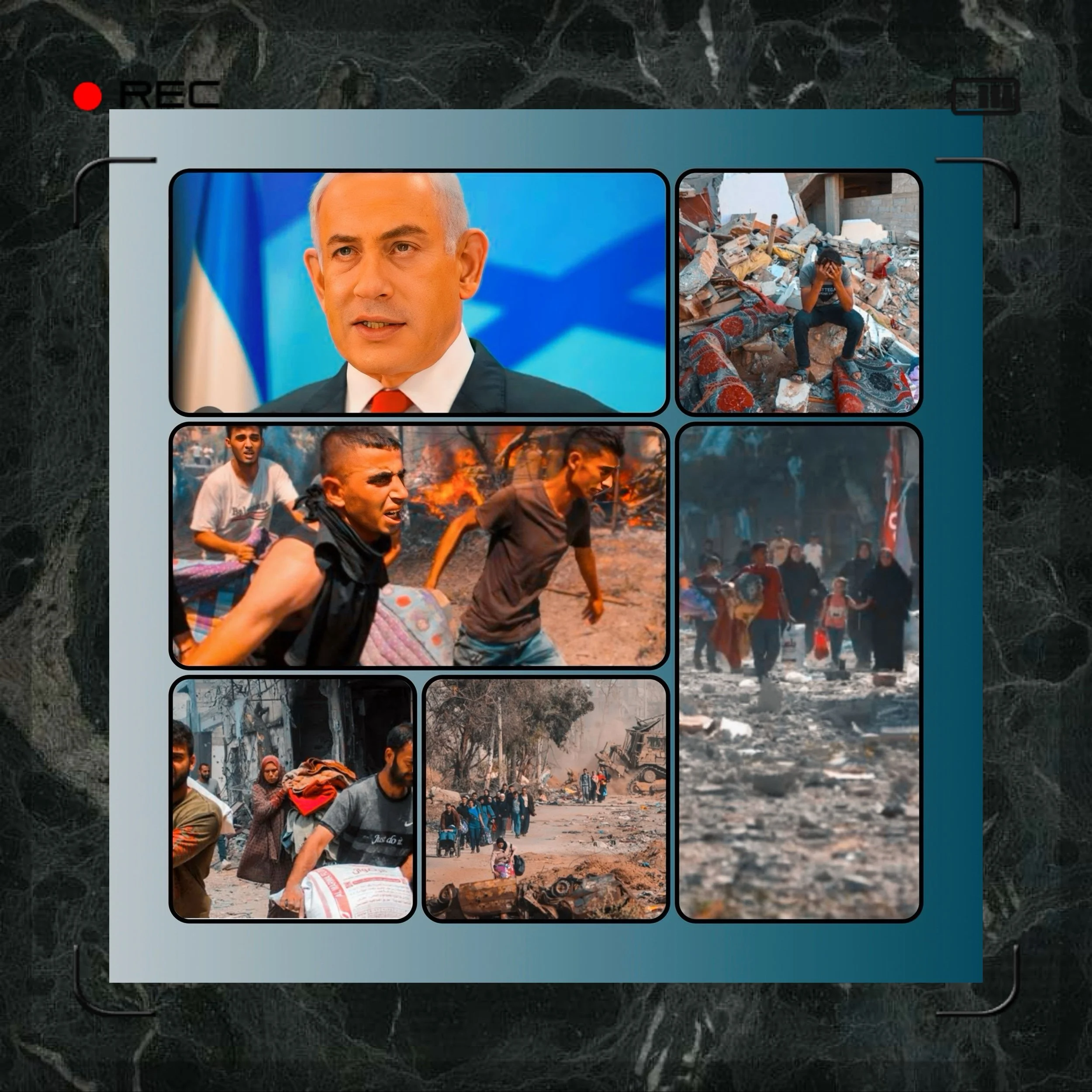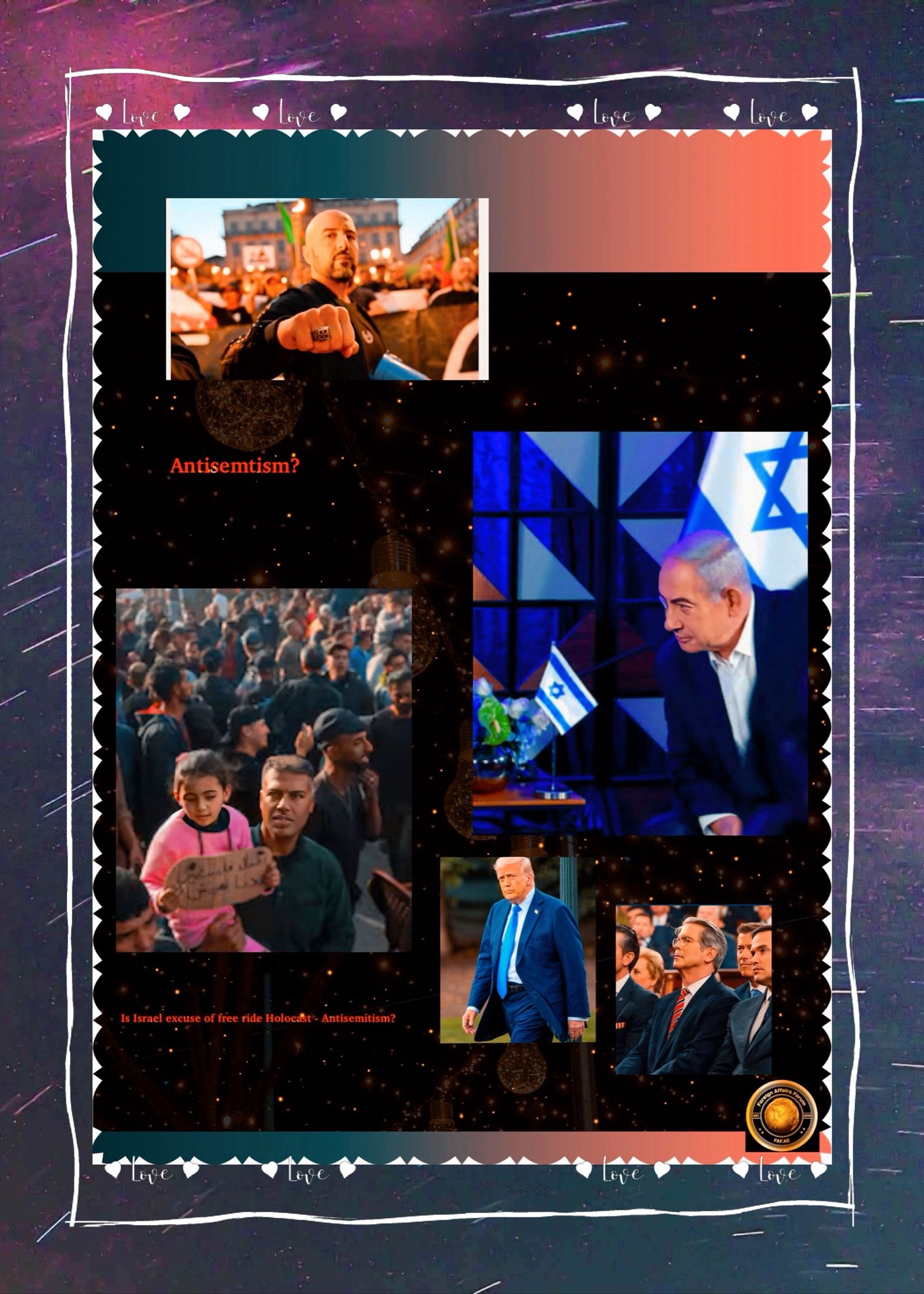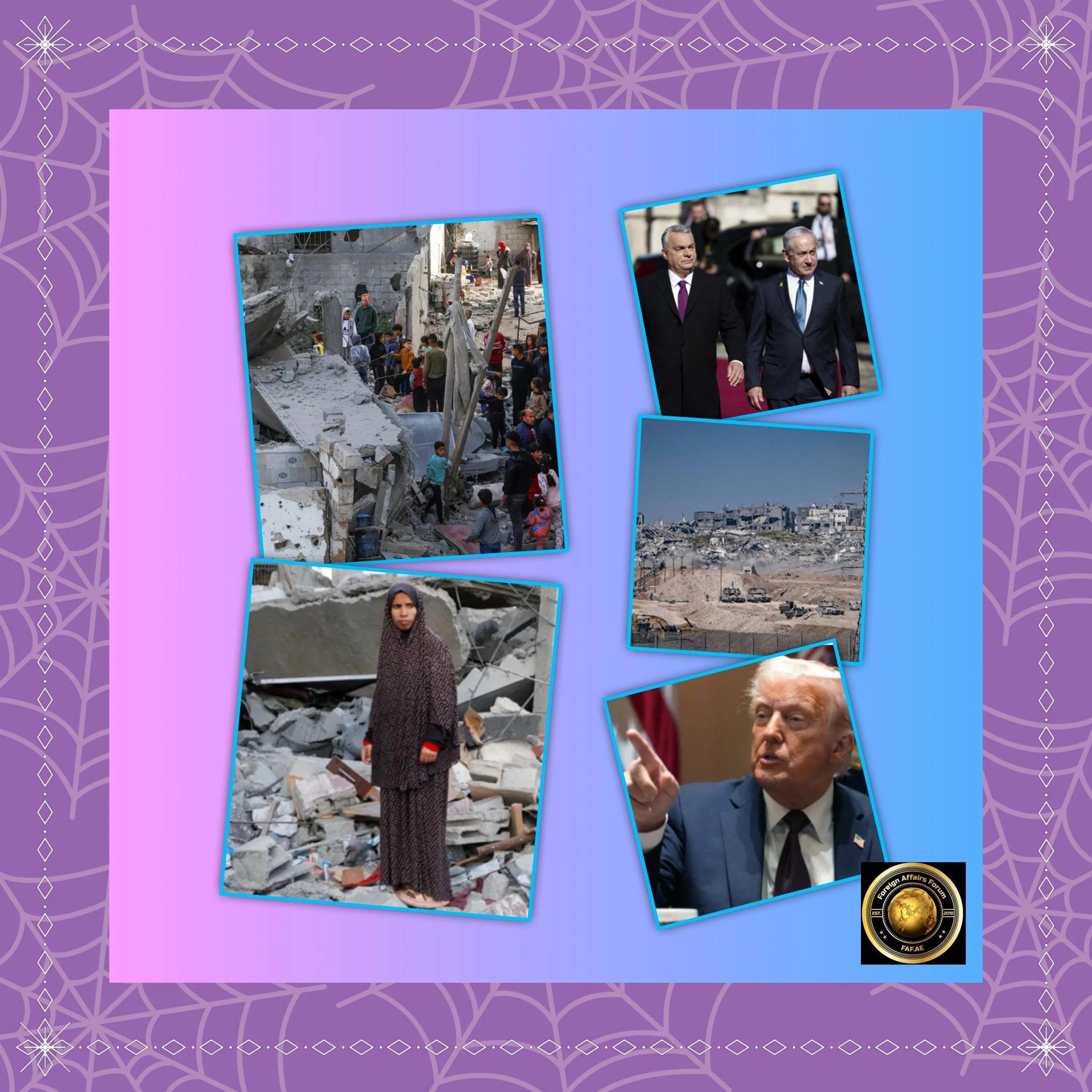The Gaza Crisis: Genocide Allegations, International Complicity, and Historical Reckoning
Introduction
The ongoing conflict in Gaza has ignited global debates about genocide, international law, and the moral responsibilities of powerful nations.
Since October 2023, Israel’s military campaign has killed over 45,500 Palestinians, displaced 1.9 million, and systematically destroyed civilian infrastructure, prompting scholars, human rights organizations, and international bodies to accuse Israel of genocide.
Despite widespread condemnation, the United States and key European nations continue to provide military and diplomatic support to Israel, raising questions about geopolitical double standards, the legacy of the Holocaust, and the failure of the international community to protect vulnerable populations.
FAF examines the evidence of genocide, analyzes global responses, and explores the ethical contradictions underpinning the crisis.
Israel’s Military Campaign and Genocide Allegations
Legal Frameworks and Genocidal Intent
The Genocide Convention of 1948 defines genocide as acts committed with the intent to destroy, in whole or in part, a national, ethnic, racial, or religious group.
These acts include killing, causing serious harm, and deliberately inflicting conditions of life calculated to bring about physical destruction.
Amnesty International and the University Network for Human Rights (UNHR) have concluded that Israel’s actions in Gaza meet this definition, citing:
Mass killings
Over 45,500 Palestinians were killed as of December 2024, with 52% of identified casualties being women and children.
Destruction of infrastructure
70% of Gaza’s homes, all universities, and most hospitals were destroyed, rendering the territory uninhabitable.
Starvation tactics
Blockades on food, water, and medical supplies have created famine conditions affecting 2.2 million people.
Holocaust scholar Amos Goldberg argues that Israel’s campaign reflects a “deliberate crushing of Palestinian existence in Gaza,” emphasizing that genocides need not mirror the Holocaust to qualify.
Israeli leaders’ rhetoric, including Defense Minister Yoav Gallant’s dehumanization of Palestinians as “human animals” and Prime Minister Benjamin Netanyahu’s invocation of the biblical annihilation of Amalek, underscores genocidal intent.
Comparative Genocide Analysis
Scholars highlight parallels between Gaza and historical genocides:
Srebrenica and Rwanda
Like the Bosnian Serb forces in Srebrenica and Hutu extremists in Rwanda, Israeli leaders frame their actions as self-defense against an existential threat, justifying mass violence.
Colonial erasure
The systematic destruction of Gaza’s cultural institutions, such as archives and universities, mirrors tactics used to erase Indigenous identities in colonial contexts.
Omer Bartov, a Holocaust and genocide studies professor at Brown University notes that Israel’s strategy—destroying housing, water systems, and healthcare—aims to make Gaza “uninhabitable,” a hallmark of genocidal campaigns.
International Responses: Complicity and Double Standards
United States: The “Blank Cheque” Doctrine
The U.S. has provided $3.8 billion in annual military aid to Israel, including bunker-buster bombs, artillery shells, and F-35 fighter jets.
Despite condemning “indiscriminate bombing,” the Biden administration bypassed Congress to expedite arms transfers, vetoed UN ceasefire resolutions, and dismissed ICJ rulings. This unwavering support stems from
Strategic interests
Maintaining Israel as a military ally in the Middle East.
Domestic politics
Fear of alienating pro-Israel lobby groups and evangelical voters, who view support for Israel as a religious obligation.
Cold War-era alliances
Framing Israel as a bulwark against “Jihadist networks” threatening “Western civilization.”
European Union: Hypocrisy and Silent Endorsement
While condemning Russia’s invasion of Ukraine, the EU continues funding Israeli institutions linked to military operations, including $250 million through the Horizon program.
Germany, France, and the UK have resisted calls to condition arms sales, citing Israel’s “right to self-defense.” This contradiction reflects:
Guilt over the Holocaust
Compensating for historical antisemitism by uncritically supporting Israel.
Economic ties
Defense contracts with Israeli firms like Israel Aerospace Industries.
Arab and Muslim Nations: Condemnation Without Action
Arab states, including Egypt and Jordan, have recalled ambassadors and issued condemnations but failed to provide military or economic support to Gaza.
This inaction stems from
Geopolitical fragility
Fear of domestic backlash and instability.
Normalization agreements
Prioritizing U.S.-brokered deals with Israel over Palestinian rights.
Historical Parallels: The Holocaust and Gaza
Betrayal of Holocaust Memory
Many scholars argue that Israel’s actions betray the lessons of the Holocaust.
Amos Goldberg, a Hebrew University Holocaust historian, states: “Jewish history will be henceforth stained.”
The ICJ’s provisional measures, which found a “plausible” risk of genocide, echo the international community’s failure to act during the Holocaust.
Instrumentalizing Trauma
Israeli leaders have weaponized Holocaust memory to justify violence.
President Isaac Herzog framed the war as a defense of “Western civilization” against a “Jihadist network,” invoking existential narratives similar to those used by genocidal regimes.
This rhetoric obscures Israel’s role as an occupier and perpetuates cycles of trauma.
Power Dynamics and Structural Violence
Settler Colonialism and Apartheid
The UNHR report links Gaza’s destruction to Israel’s broader settler-colonial project, which includes:
Land confiscation
The 56-year occupation of Palestinian territories.
Apartheid policies
Systematic discrimination against Palestinians in Israel and the occupied territories.
Ethnic cleansing
Forced displacement of 1.9 million Gazans, with officials openly advocating a “second Nakba.”
Global North vs. Global South
The crisis underscores a racialized international order. While Western nations swiftly sanctioned Russia for invading Ukraine, they shielded Israel from accountability, revealing a hierarchy of human worth.
South Africa’s ICJ case against Israel, supported by the Global South, challenges this double standard.
Scholarly Perspectives on Accountability and Justice
Legal Challenges and the ICJ
Over 800 scholars of international law have warned of genocide in Gaza, urging the ICJ to intervene.
While the court’s provisional measures order Israel to prevent genocidal acts, enforcement remains unlikely due to U.S. and EU opposition.
Moral Reckoning
Scholars like Omer Bartov emphasize that complicity in genocide jeopardizes the entire international legal system: “Impunity for Israel would endanger the entire edifice of international law.”
Others call for boycott campaigns and arms embargoes to pressure Israel.
The Role of Historical Memory
Holocaust memory, instead of fostering vigilance, has been co-opted to justify violence. As Goldberg notes, “Israelis mistakenly think genocide needs to look like the Holocaust,” ignoring the diversity of genocidal processes. Reclaiming this memory requires centering Palestinian narratives and rejecting exceptionalism.
Conclusion: A Crisis of Conscience
The Gaza conflict exposes the moral bankruptcy of the international order.
The U.S. and Europe, despite their Holocaust remembrance rhetoric, prioritize geopolitical interests over human rights, enabling genocide through arms sales and diplomatic cover.
Arab nations, meanwhile, lack the political will to challenge this status quo.
For scholars, the crisis demands a reevaluation of historical memory, legal frameworks, and the role of power in shaping justice.
The UNHR report concludes, “History will judge not only the perpetrators but also those who stood silent.”
The choice is clear: uphold universal human rights or perpetuate cycles of violence that mock the vow of “Never Again.”






